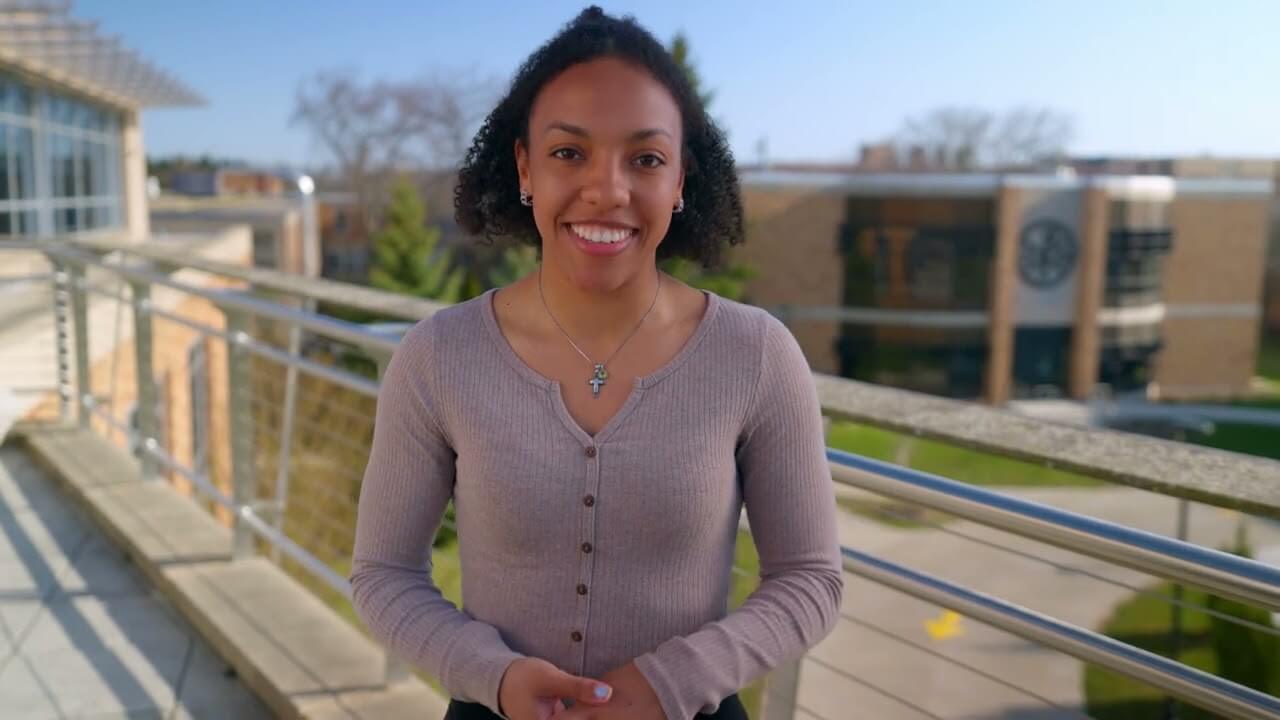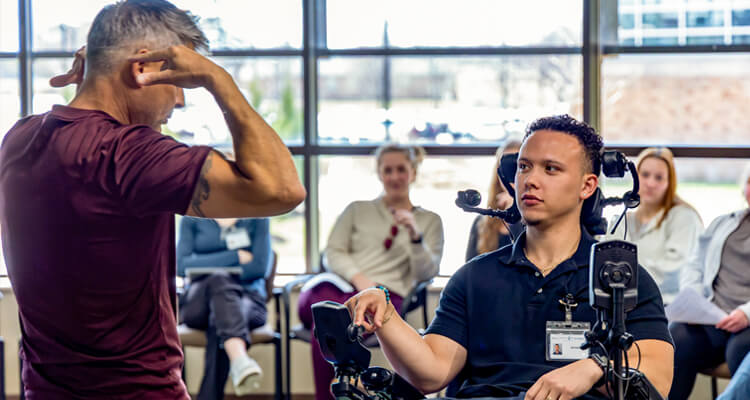Build a strong foundation in science, health, and communication—subjects essential to the OT profession.
How to become an Occupational Therapist?
As an occupational therapist (OT), you help people of all ages live fuller, more independent lives. That might mean guiding a child through developmental milestones, supporting an adult recovering from injury, or helping a senior age with dignity. Rooted in purpose and compassion, this high-impact field is as rewarding as it is essential.
Sabrina's story
“At CUW, I've experienced clinicals that feel just like the real world—and the support team inspires my confidence each day.”
— Sabrina, OT Student

Why Choose a Career in Occupational Therapy?
Make a difference every day
OTs enhance physical, emotional, and social wellbeing through meaningful activities.
Strong career outlook
OT is ranked among the fastest-growing health professions with excellent salaries and stability.
Versatile settings
Hospitals, schools, clinics, and community organizations all need occupational therapists.
Opportunities to specialize
Focus on pediatrics, rehabilitation, mental health, or emerging areas like assistive technology.
Steps to Becoming an Occupational Therapist

Choose a pre-occupational therapy or related field (kinesiology, psychology, biology), making sure you meet prerequisites for graduate study.
Pursue a Master’s (MSOT) or Doctorate (OTD) that prepares you for licensure and advanced practice.
The National Board for Certification in Occupational Therapy ensures you are ready to practice. CUW graduates consistently exceed national pass rates.
With licensure, you’ll be qualified to work in hospitals, schools, outpatient clinics, home health, and more.
What is the career outlook and salary of an Occupational Therapist?
- Average Salary:$93,180
- Job Growth (2025-32):12%
- NBCOT Pass Rate:99%
- Job Placement Rate:95%
High-demand, high-impact, and high ROI
- Occupational therapy is growing faster than most careers in healthcare
- Whether entering college or changing careers, OT offers long-term stability and opportunity
- OT is one of the most financially rewarding careers in allied health
- OT named a Top 20 Health Care Career by U.S. News & World Report
- OTs play a critical role in stroke recovery, pediatric development, and aging-in-place
How do I start my career in OT?
CUW Offers Multiple Pathways to Occupational Therapy. No matter where you're starting—from high school student to working OTA—Concordia University offers a pathway into occupational therapy that meets your needs and honors your goals. Each path is faith-driven, fully accredited, and aligned with real-world healthcare demands.
What to expect from a CUW OT program:
- Hands-on learning: Early Level I experiences; 24 weeks of Level II fieldwork
- Doctoral capstone (OTD): A 14-week advanced project in your interest area
- Faith-integrated education: Christian worldview woven through care, ethics, and service
- Supportive community: Close-knit cohorts, expert faculty, and individualized mentorship
Pathways to an Occupational Therapy career
Traditional track
Looking for a traditional college experience? Explore the Rehab Science Major Pre-OT track for built-in prerequisites.
Direct admit track
Lock in your spot in the master's (MOT) program as an incoming freshman. Complete your master's in 4.5 years or your doctorate (OTD) in 5 years. Explore the Rehab Science Major Accelerated track to learn more.
Explore the Rehab Science Major Pre-OT track for built-in OT prerequisites.
Already a Certified Occupational Therapy Assistant (COTA)? Further your education and opportunities; earn your Master of Occupational Therapy degree in three years or your Doctor of Occupational Therapy degree in four years. View the OTA Bridge Program to learn more.
College Graduates
- Have your associate's degree? Explore the Rehab Science Major to begin.
- Have a bachelor's degree? Check out the MOT - Bridge track to get started.
If you already hold a bachelor’s degree; no matter the subject area, you could complete your master’s degree (MOT) in two years, or your doctorate (OTD) in less than three! Check out the MOT Face-to-Face track for more information.
Request Information
Walk through your pathway choices with an admissions counselor.